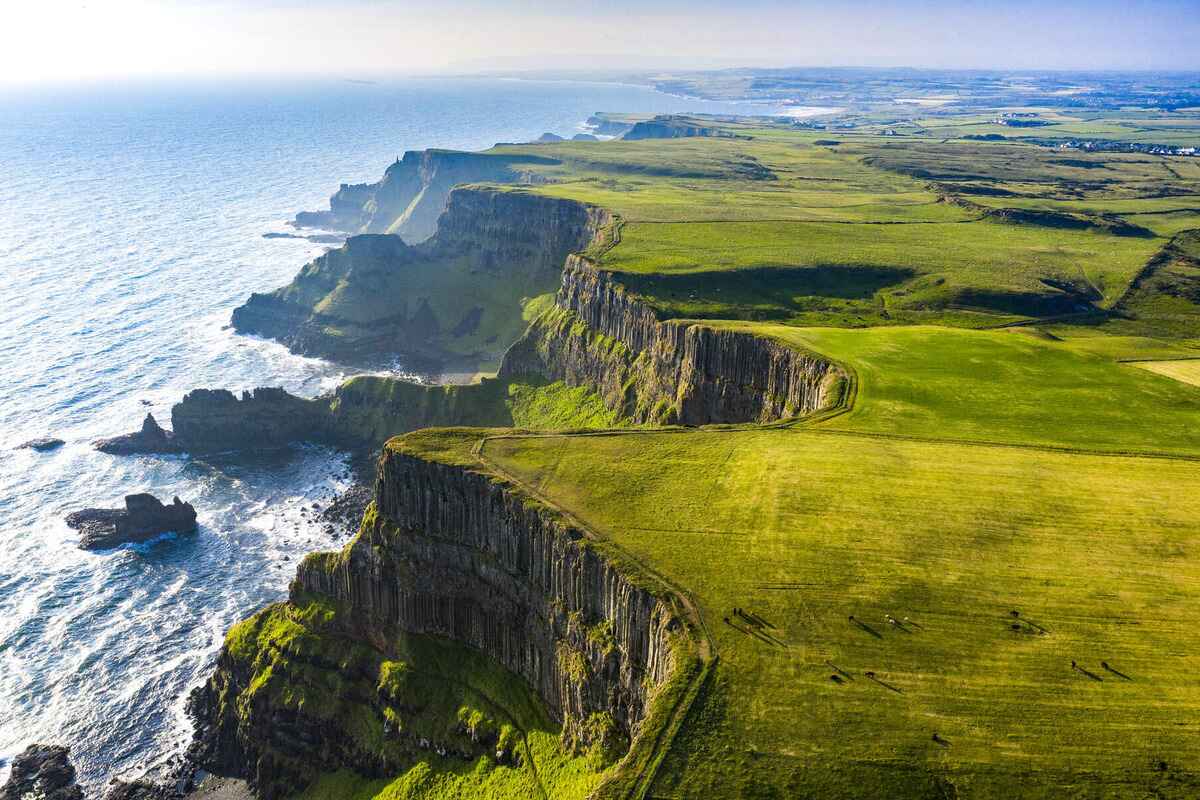
Ever wondered why Ireland, often called the Emerald Isle, captures hearts worldwide? Ireland is not just about leprechauns and pots of gold at the end of rainbows. This country is a fascinating blend of culture, history, and myths that can make anyone's eyes sparkle with curiosity. From its breathtaking landscapes to the warm hospitality of its people, Ireland offers a treasure trove of stories and facts that are as intriguing as they are diverse. But what makes this island truly unique? Let's dive into 15 fun facts about Ireland that showcase its rich culture, captivating history, and much more. Ready to be amazed by what you'll discover about this enchanting land?
Key Takeaways:
- Ireland's rich culture is a blend of ancient traditions and modern quirks, from St. Patrick's story to the origins of Halloween and the Claddagh ring.
- The Emerald Isle's history, natural beauty, and contributions to literature, music, and sports make it a fascinating and vibrant destination to explore.
Discovering Ireland's Rich Culture
Ireland, known for its lush landscapes and vibrant culture, holds a treasure trove of interesting facts that many might not know. From ancient traditions to modern-day quirks, this island nation has a lot to offer.
-
St. Patrick, Ireland's patron saint, wasn't Irish. Born in Britain, he was captured and brought to Ireland as a slave. He later escaped but returned to Ireland to bring Christianity to its people.
-
The Irish language, or Gaelic, is one of the oldest written languages in the world. Despite its long history, it's spoken daily by only a small percentage of the population.
Ireland's Historical Landmarks
Ireland's history is etched into its landscapes, from ancient castles to natural wonders.
-
Newgrange, older than Stonehenge and the Egyptian pyramids, is a 5,200-year-old passage tomb located in County Meath. It's known for the Winter Solstice illumination, a phenomenon where the sunrise lights up its inner chamber.
-
The Titanic was built in Belfast, Northern Ireland. The city's shipyard, Harland and Wolff, was once the largest in the world.
Unique Irish Traditions
Irish traditions are a blend of ancient pagan customs and Christian beliefs.
-
Halloween originated from the ancient Celtic festival Samhain, celebrated in Ireland over 2,000 years ago. It marked the end of the harvest season and the beginning of winter.
-
The Claddagh ring, a symbol of love, loyalty, and friendship, originated in Galway. Its design and customs date back to the 17th century.
Ireland's Natural Beauty
Ireland's nickname, "The Emerald Isle," is well earned, thanks to its verdant landscapes and natural beauty.
-
The Giant's Causeway, a UNESCO World Heritage site in Northern Ireland, features about 40,000 interlocking basalt columns, the result of an ancient volcanic fissure eruption.
-
The Wild Atlantic Way is one of the longest defined coastal routes in the world. Stretching over 2,500 km, it showcases breathtaking scenery, from towering cliffs to quiet beaches.
Irish Innovations and Contributions
Ireland has given the world more than just Guinness and leprechauns.
-
The submarine was invented by John Philip Holland from County Clare. His first successful model was launched in 1878.
-
Color photography owes its existence to John Joly, an Irishman who developed an early process in 1894.
Ireland in Literature and Music
Ireland's contributions to literature and music are renowned worldwide.
-
Four Nobel Prize winners in Literature are Irish: W.B. Yeats, George Bernard Shaw, Samuel Beckett, and Seamus Heaney.
-
U2, one of the world's biggest rock bands, was formed in Dublin in 1976. They've won 22 Grammy Awards, more than any other band.
Ireland's Sporting Culture
Sports play a significant role in Irish culture, with some native games predating recorded history.
-
Gaelic football and hurling are traditional Irish sports with ancient origins. The All-Ireland Finals in these sports are among the most watched events in the country.
-
The Irish Rugby Team is a force to be reckoned with on the international stage, competing in the Six Nations Championship and the Rugby World Cup.
-
Golf is hugely popular in Ireland, which boasts some of the world's most beautiful and challenging courses. Ireland has produced several top golfers, including Rory McIlroy.
A Look Back at Ireland's Rich Tapestry
Ireland's story is one of vibrant culture, deep-rooted history, and fascinating facts that paint a picture of a land steeped in tradition and innovation. From the ancient allure of the Celtic heritage to the modern vibrancy of its cities, Ireland offers a unique blend of the past and present. Its contributions to literature, music, and dance resonate worldwide, showcasing the enduring spirit of the Irish people. The Emerald Isle's natural beauty, from the rugged cliffs of Moher to the serene landscapes of Connemara, continues to captivate hearts and minds. Understanding Ireland through these 15 fun facts barely scratches the surface, but it's a start. Each fact is a gateway to a deeper exploration of what makes Ireland truly magical. So, whether you're tracing your roots or simply enchanted by tales of leprechauns and legends, Ireland's charm is undeniable.
Frequently Asked Questions
Was this page helpful?
Our commitment to delivering trustworthy and engaging content is at the heart of what we do. Each fact on our site is contributed by real users like you, bringing a wealth of diverse insights and information. To ensure the highest standards of accuracy and reliability, our dedicated editors meticulously review each submission. This process guarantees that the facts we share are not only fascinating but also credible. Trust in our commitment to quality and authenticity as you explore and learn with us.


